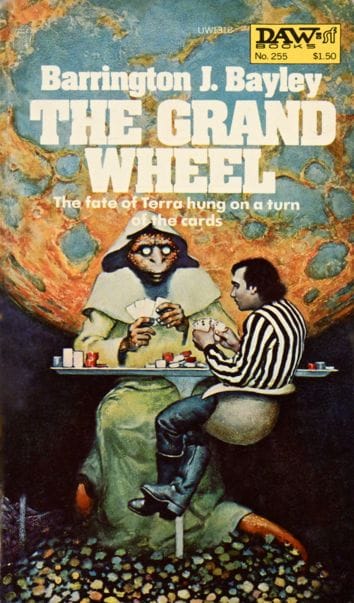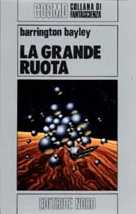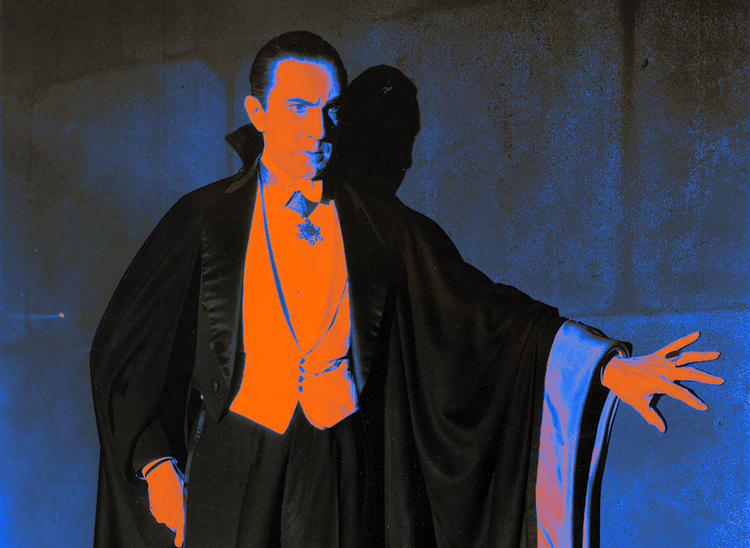Purest Hazard

This is the second Bayley I've read, after The Zen Gun. I ordered it in from overseas because I was so excited by the premise. It’s about a guy playing a card game with infinitely changing rules, against vast alien competitors with all of human civilisation at stake.
I absolutely love fictional card games. I love Greed Island inHunter X Hunter. I love the Deck of Dragons in the Malazan novels. I love Card Wars in Adventure Time. So I was hyped about this and a little disappointed that, in the end, the actual card game only takes up a small part of the novel.
What this book is really about is not so much games as gambling. The big alien card game that caps off the novel is described as requiring great skill, but it also involves a lot of luck. And the other games the characters play are mostly just random, ranging from Russian roulette to slot machines.
Randomness underpins everything in The Grand Wheel—sometimes quite literally, as when the main character is transported in a vision to “the gulf of pure randomness that underlay all existence”.
The titular Grand Wheel is a vast criminal syndicate that controls all gambling business on the various human-inhabited worlds. But these guys don't just make money off gambling; they love gambling. They have a near-mystical obsession with randomness, as they explain in this rather Borgesian passage:
Here on earth there are people whose whole lives are games of chance organized by the Wheel. There are people playing games to win a chance to get into bigger games. It’s a study of life itself. There are people who don’t even know that they are playing. There are people who have a life-game set up for them before they are even born.
This love of chance goes all the way to the top. It is possible (though unlikely) for players to randomly win high positions within the Wheel hierarchy. Conversely, even the highest members can lose it all on a single bet. In one scene we see the Wheel’s high council, made up of twelve members; when they reach a tied vote, the deadlock is broken by activating a machine that randomly vaporises one council member on the spot.

Opposing the Grand Wheel is the Legitimacy: the official government of all humanity, who represent order and predictability. They would like to reshape society into something completely deterministic, with no chance involved at all. However, they aren’t having much luck. Not only are they unable to stamp out the Grand Wheel, but they are fighting a losing war against alien invaders from the other side of the galaxy. (This is the second Bayley novel in a row that's set in a space empire five minutes away from catastrophic collapse.)
Caught between all these enormous forces is our hero, Cheyne Scarne: a small-time gambler and professor of “randomatics”. Blackmailed by the Legitimacy, Scarne is forced to work as a double agent and infiltrate the Grand Wheel. Eventually he gets dragged into a high-stakes game against a galactic consortium of gambler-aliens, with the entirety of the Grand Wheel's assets at stake.
Like The Zen Gun, There were moments in this book that got a "hell yeah" from me. There's a great early sequence in which Scarne has a psychedelic vision in which he becomes a number (specifically: 1413721) and narrowly escapes being swallowed by "the great serpent, the incalculable dragon”, π. And then there's the scene where a character messes around with “the luck equations” and ends up literally too unlucky to live.
But overall I wasn't quite as thrilled as I was by The Zen Gun (which seems even better in hindsight). The Zen Gun was an actually unhinged novel. Like watching a clown riding a tricycle with the wheels coming off; you can see the crash coming but you enjoy the energy nonetheless. The Grand Wheel is a bit more put together, which paradoxically makes it a bit less interesting. The most conventional parts of the novel—the space battles, the sci-fi spy stuff—are merely serviceable, lacking the crazed energy that permeates the gambling sections.
But what about the big card game? Well, it’s fun while it lasts, but it doesn't last long. The rules of the game are never deeply discussed, but there are some funky elements that make it enjoyable to read. The game is played with Tarot cards, of course (70s sci-fi writers love Tarot cards. Then again, who doesn’t?). Players in this game are able to psychically transform their cards or even their opponents’ cards, in a kind of mental battle of wills. What’s more, if you aren't careful you can get sucked into the card, trapped in a symbolic landscape based on that card’s particular imagery. All this is goofy fun, but it only lasts a couple of chapters before other plot points leap to the fore and the story wraps up.

In the end, the theme of randomness and determinism is the most interesting part of the book. After I finished, I was left wondering: 48 years later, do we live in the Grand Wheel’s world? Or the Legitimacy’s?
With the proliferation of generative AI into every aspect of software, it seems we may be entering a Stochastic Age; a world in which all our tools have a chance of random failure built-in. The most extreme example of this trend might be Extropic AI, a startup that promises to “merge generative AI with the physics of the world” and “harness matter's natural fluctuations as a computational resource”. (I'm fairly certain this is just a grift, but it does reflect the tenor of hype in Silicon Valley right now.) A world where everything we do is a tiny gamble! The Grand Wheel would love to see it.
On the other hand, when you zoom out far enough, Big Data seems to have only made the world more predictable. If your data says that one person has a 50% chance of clicking your ad, that’s a gamble. But if you can run 10,000 ads on a class of people with those odds, you're pretty much guaranteed to get about 5,000 clicks. That's the Legitimacy's world: a world of Sure Things. So perhaps the difference between order and chaos is merely a matter of perspective.
Availability: It's available as an ebook, and the old copies are cheap.





Member discussion